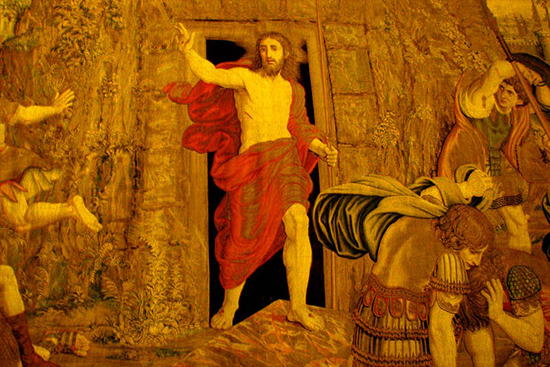Jesus Mythicism—have you ever heard of it? It’s the idea that Jesus never existed. If it sounds like rubbish to you, that’s because it is. Until a few months ago I had never actually heard someone defend the position. I simply assumed that Jesus Mythicists were merely online trolls who lived under the fantastical bridges of the world wide web.
However, I was able to hear one prominent Jesus Mythicist, Richard Carrier, articulate his views at the Regional SBL meeting in Southern California. His particular contention is that the earliest Jesus traditions point to belief in an other-worldly Jesus figure who was not believed to be a historical person until much later. So by the time we get to the Gospels—which have to be quite late for his theory to work—we finally see the other-worldly Jesus given a historical narrative and an earthly ministry.
Crucial to Carrier’s position is the claim that Paul, for instance, did not believe in a historical or earthly Jesus. The reason why this is so important for him is because Paul’s letters are actually the earliest literary evidence we have for Christianity. Let me just say that his readings of the most obvious Pauline passages that speak of Jesus’ physical life and birth (Gal 4.4; Rom 1.3) are remarkably torturous. Additionally, the obvious places where Paul speaks of Jesus’ physical death (1 Cor 2.8; 1 Thess 2.14–16) are likewise ridiculous (according to Carrier, Jesus was crucified by Satan). Carrier and other Jesus Mythicists clearly skew the evidence to match the conclusions they want.
On the one hand I don’t find this position worth engaging at all. Only a small fringe of people even admit to holding such a view. Even scholars like Bart Ehrman and Maurice Casey—non-Christian Jesus scholars—have written book-length rebuttals of these ideas. So there really is no need to bring any of this up, although for those of you who have come across Zeitgeist or other conspiracy theory stuff on the internet, perhaps you will find this stuff interesting. But, on the other hand, a question occurred to me as I was reading through Galatians a few times this week. I’m not sure if anyone has mentioned this in debates on this topic before but I thought I’d mention it here because I genuinely don’t know what Carrier or any other Jesus Mythicist would say. And I’m just a curious boy.
Here’s the question I have: are there any examples within Jewish scriptures or traditions of any other-worldly figures dying? More specifically, are there any examples of angels, demons, demi-gods, etc, experiencing a legitimate cessation of life or existence such that it could be called death? No doubt you could point to some Greco-Roman sources, but I ask this about Jewish traditions because I cannot think of any examples where one might find a spiritual creature dying or experiencing death. If this is true, then Paul’s references to Jesus being raised “from the dead” (ἐκ νεκρῶν; literally, “from the dead ones”) creates two problems. First, it is hardly likely that Jesus’ death is a reference to an otherworldly death because no such examples of this exist in Jewish tradition. And this point is simply based on the phrase “from the dead”—I am not including additional evidence that establishes the physical and earthly death of Jesus for the sake of this question. Second, since the Greek literally means “from the dead ones,” who are the other dead ones? If there are no examples of otherworldly figures dying then surely these other “dead ones” are not otherworldly figures. This suggests that Jesus was raised from the realm of other dead people (which I think is best understood in reference to a Jewish notion of the grave as the destination of the dead). So I would just like to know what the standard rebuttal to my remarks about Jesus’ resurrection ἐκ νεκρῶν is, if such a response exists.



3 Comments
Leave your reply.